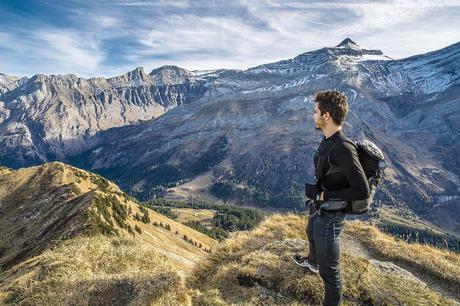Travel blogging is on the rise. Many young, spontaneous and wanderlust filled individuals are taking to the internet to document their adventures in hope of making a bit of money out of it. The life of a digital nomad is incredibly attractive, and if you can successfully set up and monetize your own blog, then you’ve essentially made the dream come true.
However, with so many sites of this type popping up all over the internet, many readers have to separate the good from the bad. There are many silly mistakes that amateur bloggers make repetitively that consistently affect their reputation and that could be easily remedied if they spent enough time on it. Fortunately, this list is a great place to start to identify the points of weakness on your blog, the mistakes your making and why you aren’t finding as much success and you’d like!

Security
Failing to properly consider and monitor online security is perhaps the most common, and detrimental, mistake that bloggers make. No matter how good your content is or how well you’ve marketed yourself, if you fall victim to malware or a malicious cyberattacks, then your site and your reputation could be damaged beyond repair. Once readers notice a blog has obviously been compromised, they fear for their own online safety and avoid that domain like the plague. Even if it’s just some injected code that’s causing an unsavory pop-up, it could result in you losing your readership for good.
This is particularly poignant for travel bloggers as a lot of the time they are forced to update while using public WiFi networks. These networks are notoriously insecure as they leave your data visible. Fortunately, by simply using a Virtual Private Network, you can create an initial secure connection that encrypts your data and protects you and your blog online.
Your USP
A USP—or unique selling point—is something that makes your blog stand out. The internet is becoming flooded with travel blogs, and many of them cover visits to the same countries and attractions. Because of this, the need to have an individual selling point is essential to ensure you attract readers and keep them interested.
There are many different ways you can make your travel blog unique: focus on one specific area of the world, such as South East Asia, or combine it with another topic that you enjoy—for example watersports, photography or food. If you can find a sub-niche that works for you then you can double the interest value and hopefully attract double the readers. Modelling your site on yourself and your own personality is also important. Let your readers feel like they’re really getting to know you and what your interests are.

Staying Up To Date
One of the easiest mistakes that travelers bloggers can make is not being consistent or frequent with their content. Due to the fact that many people who write these kinds of websites also spend a lot of their time on the road and traveling themselves, it’s easy to loose track of posts or be away from WiFi for so long that you aren’t able to update. One of the most essential features of a blog is that you update your content regularly. This keeps readers interested and constantly coming back for more, so it’s incredibly important to increase your overall traffic.
Set a day aside each week when you aim to post and make sure that, no matter what else you’re doing, you sit down and write something that you can share. Another tactic is bulk-writing posts and the drip-feeding them out over a longer period of time. This is a great way to do it as it allows you big chunks of uninterrupted travel in between.
Responding to Commenters
As previously mentioned, your blog is a representation of you and your readers want to feel like they actually know you. Because of this, responding to comments in extremely important! Not only does it make your blog more interactive overall, as active discussion encourage people to keep coming back and adding their opinions, being responsive allows people to feel like they’ve developed a relationship with you.
Because of this, they are much more likely to feel a connection with your work and to keep coming back and checking for new content. It’s also a great way to encourage people to subscribe. Similarly, responding to comments shows that you care about your site; that you’re serious and dedicated to your work. This is extremely attractive for readers as it encourages them to have faith in the source, and subsequently have faith in you.

Writing For Search Engines
Any good blogger knows that SEO is important; however, brilliant bloggers know that it’s not as important as most people think. SEO—the practice of tailoring your site to try and increase its ranking in Google and other search engines—can easily overtake the effort you put into your content and marketing.
While keywording and link building are helpful to increase your reach, having articles that are passionate about their subjects, informative and entertaining is what is going to keep the interest and ultimately determine your popularity. You may receive sudden spikes in traffic from certain posts increasing their search engine ranking, but if you can’t keep up that quality of work, then you’ll soon see that readers lose interest. Write for your audience, not for Google, and you’ll find your have longer lasting success.
Can you think of any other mistakes travel bloggers make? Or do you have any tips to rectify the ones already mentioned? Be sure to leave a comment below and share your experiences!

